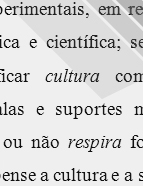

................................
Herculano's text (and Cartas sobre a História de Portugal [Letters on the History of Portugal]) would serve as the basis for Antero de Quental's obstinate diagnosis, Causas da decadência dos povos peninsulares [Causes of the Decline of the Peninsular Peoples], of a society which, in its contempt of freedom, condemned the historical fate of its culture and expectations of "reform". Hence, the Generation of the 70s and the Programa de trabalhos para a geração nova [Programme of Works for the New Generation], designed in the Democratic Conferences, proposed a "cultural revolution" as a didactic defeat of this polis, between the cidade e as serras [city and the mountains], tumultuous and apathetic in its cultural (un)consciousness, which Eça de Queirós masterfully carved in Abranhos and Acácios.
While the historian Oliveira Martins (1845-1894) explored interdisciplinary avenues (Catroga, "A Historiografia de Oliveira Martins" ["The Historiography of Oliveira Martins"] 2001), he mobilised cultural perspectives of history, and perhaps already a singular conception of the history of culture. Many pages, particularly from the Biblioteca das Ciências Sociais [Social Sciences Library] characterise a model of approaching the comparative study of culture, a Hegelian moment of superior objectification of the Spiritus. In his excursions into the history of religions and theological, deistic, and metaphysical ideations, under the influence of D. Strauss and E. Renan, such as in O Helenismo e a Civilização Cristã [Hellenism and Christian Civilisation] (1880) and Sistemas de Mitos Religiosos [Religious Myth Systems] (1882), he analyses the historical moment of the rational rift from anthropological determinism (meso-ethnological) in the relative historical indeterminacy (chance, emergence of great men) that could only be explained by the recourse to a psycho-constitutive typology, the cultural genius. Thus, he saw the triumph of reason and the conscious expression of thought at the apex of historicity, for the abstraction of the species and the metaphysics of Law, bound in the categorical notion of Morality, founded human reason (Oliveira Martins, Elementos de Antropologia [Elements of Anthropology], 1987 (1880), pp. 164-65) upon the instinctive and unconscious mass. In this case, the particular stamp of Iberian civilisation stems from the blend of "primitive" cultures and "Indo-European ideas" (Oliveira Martins, História da Civilização Ibérica [History of Iberian Civilisation], 1885, p. XXXIII).
